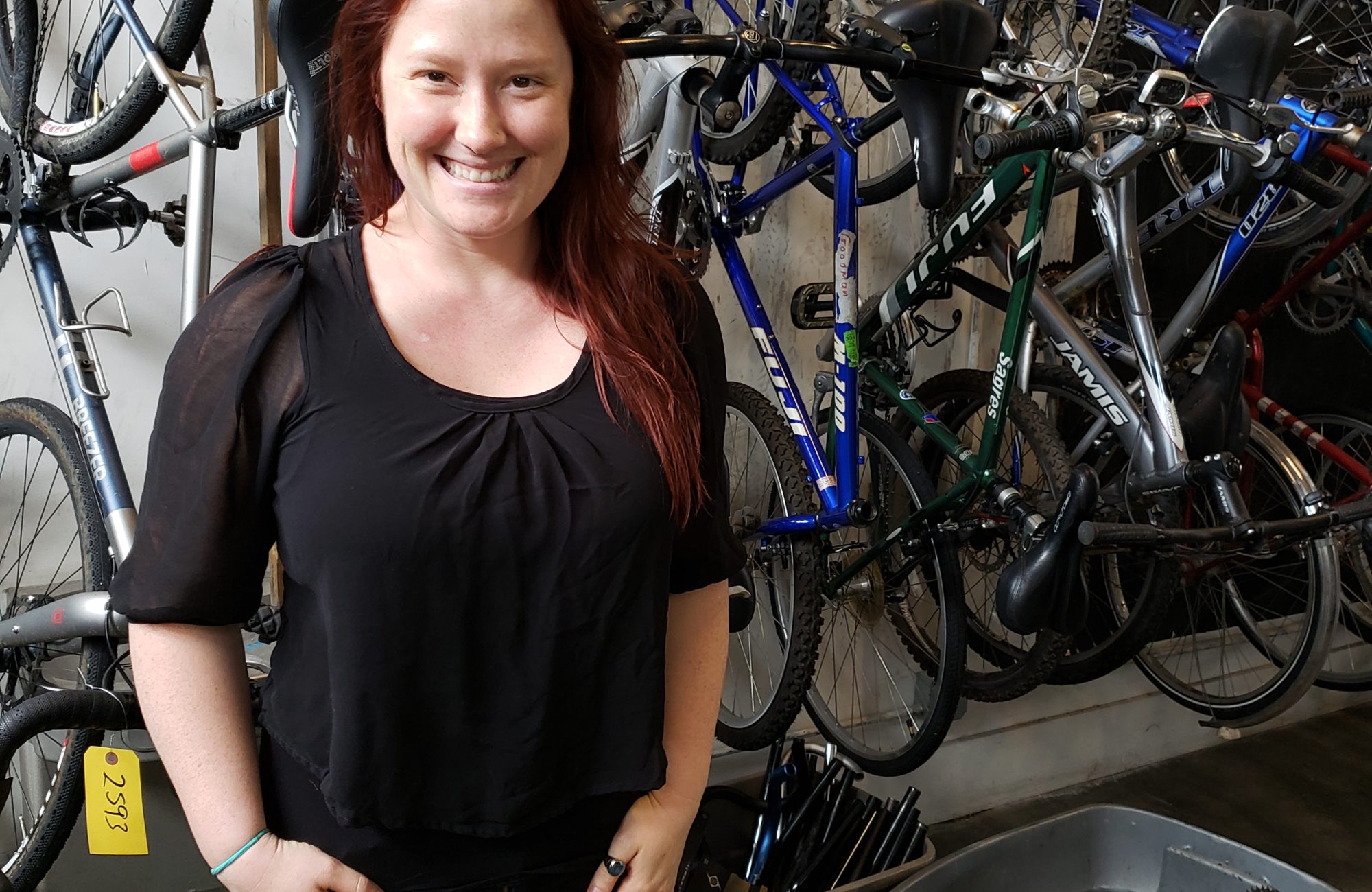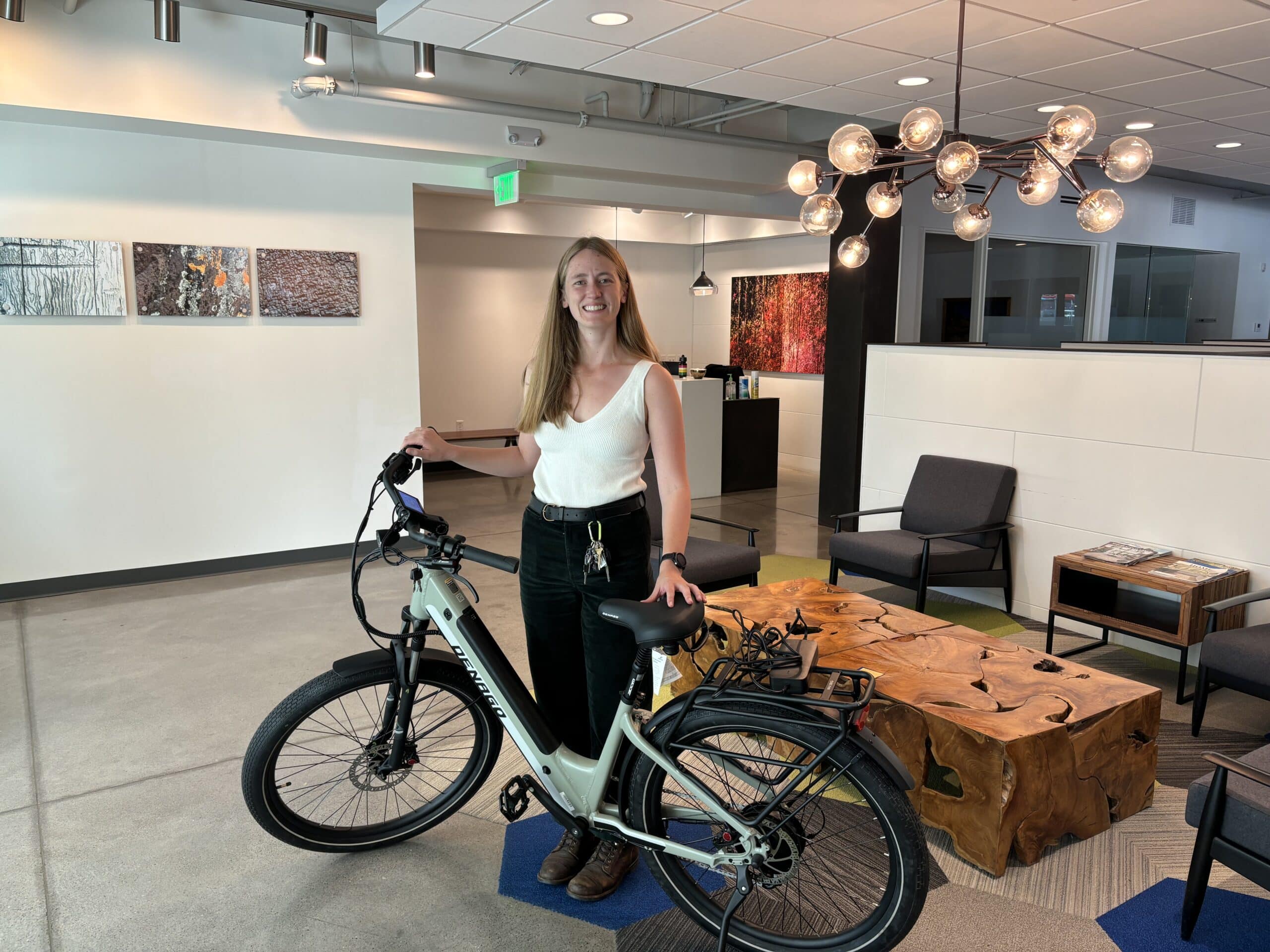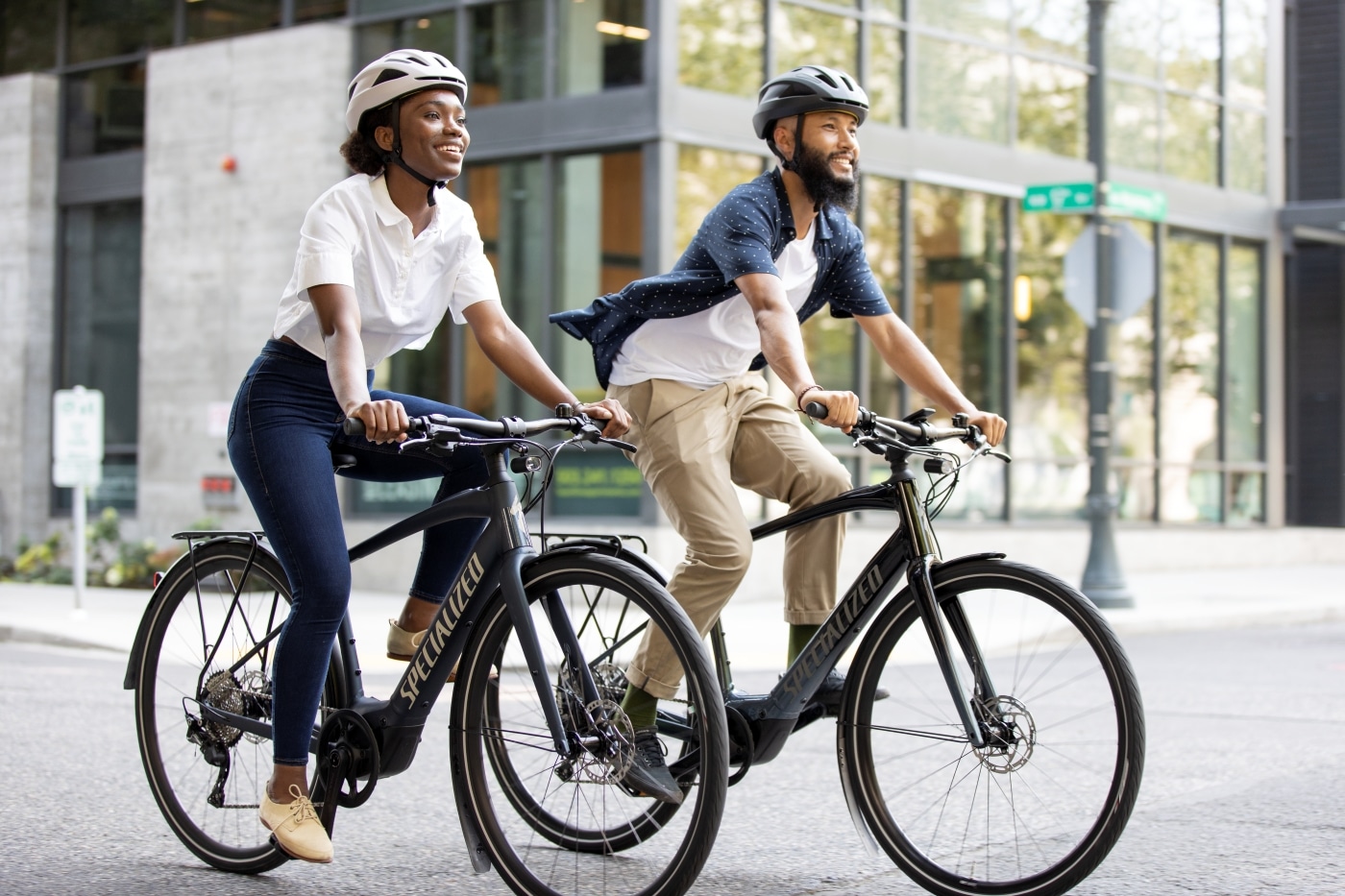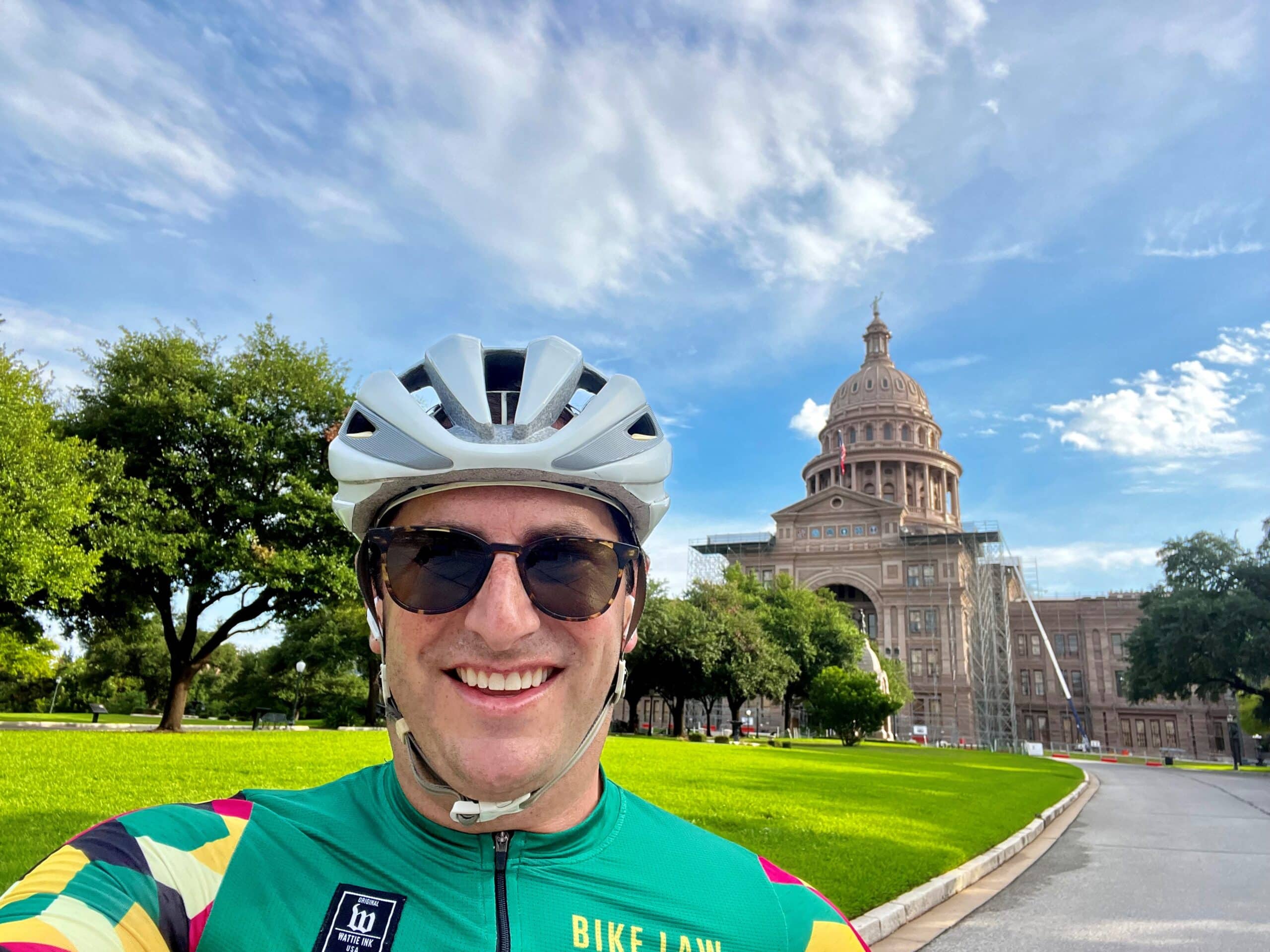Kathryn is an inspiration for other women on bikes and has paved the way for the rest of us to be wheels down, heard, and SEEN.
How could you possibly know that someone’s in need if you don’t even know they exist?
In the universe of bike advocacy and promoting women on bikes, being effective means embracing all cyclists, practicing a willingness to ask difficult questions, taking on difficult challenges, and speaking for those whose voices are not recognized or are drowned out by what is often times ambient noise.
If You Pedal, You are a Cyclist
Being a cyclist isn’t defined by how fast, how far, how fit. It’s not a title or label given with conditions; if you push the pedals around, you’re a cyclist. At Bike Law we do not measure or quantify the value of any member of our bicycle community by metrics used in competitive or recreational cycling. We look to grow ridership amongst the communities that are underrepresented in many ways, not just in cycling, because, ironically, if you’re reading this, you’re part of a different demographic of people on bikes. Getting in the saddle is safer for you, you have easy access to necessary resources, and you have the means to protect yourself in ways that others do not.
When I travel around the country talking to local bike shops, one of the most important things every cyclist that’s attended one of my presentations takes away is that you can protect yourself in the event of a crash with your own automotive insurance policy. Max out your UIM. No, it doesn’t matter that your crash occurred while you were in the saddle, not behind the wheel. Yes, you can use that portion of your policy if the driver who hits you doesn’t have adequate coverage. No, it’s not particularly expensive. (How do YOU quantify the quality of your own life?) Yes, it can be the simple, proactive difference between focusing on what’s most important (your recovery) and being riddled with debt and mounting medical bills after a crash.
But what if you’re part of the majority of American bicyclists who live at or below the poverty line? What if you don’t drive or own a car? Or own a home? Or even have access to the internet? What if you don’t feel welcomed or comfortable walking into any regular bike shop because even though you ride your bicycle more than the shop owners and mechanics do in frequency and regularity, you aren’t supported, or even recognized as being part of the cycling community?
What if being a cyclist meant fighting against every social and cultural inequity possible in addition to the ones facing people on bikes as a whole? And what if you had to fight those inequities without the tools, skills, or representation to do so?
Women on Bikes: Kathryn Doornbos
For the millions of cyclists who find themselves in this unfortunate and unacceptable position, women like Kathryn Doornbos and shops like Redemptive Cycles in Birmingham, AL are so very important. They are integral to the protection, promotion, and growth of the WHOLE bike community, not just those who, whether unbeknownst to them or not, are always riding with a significant tailwind.
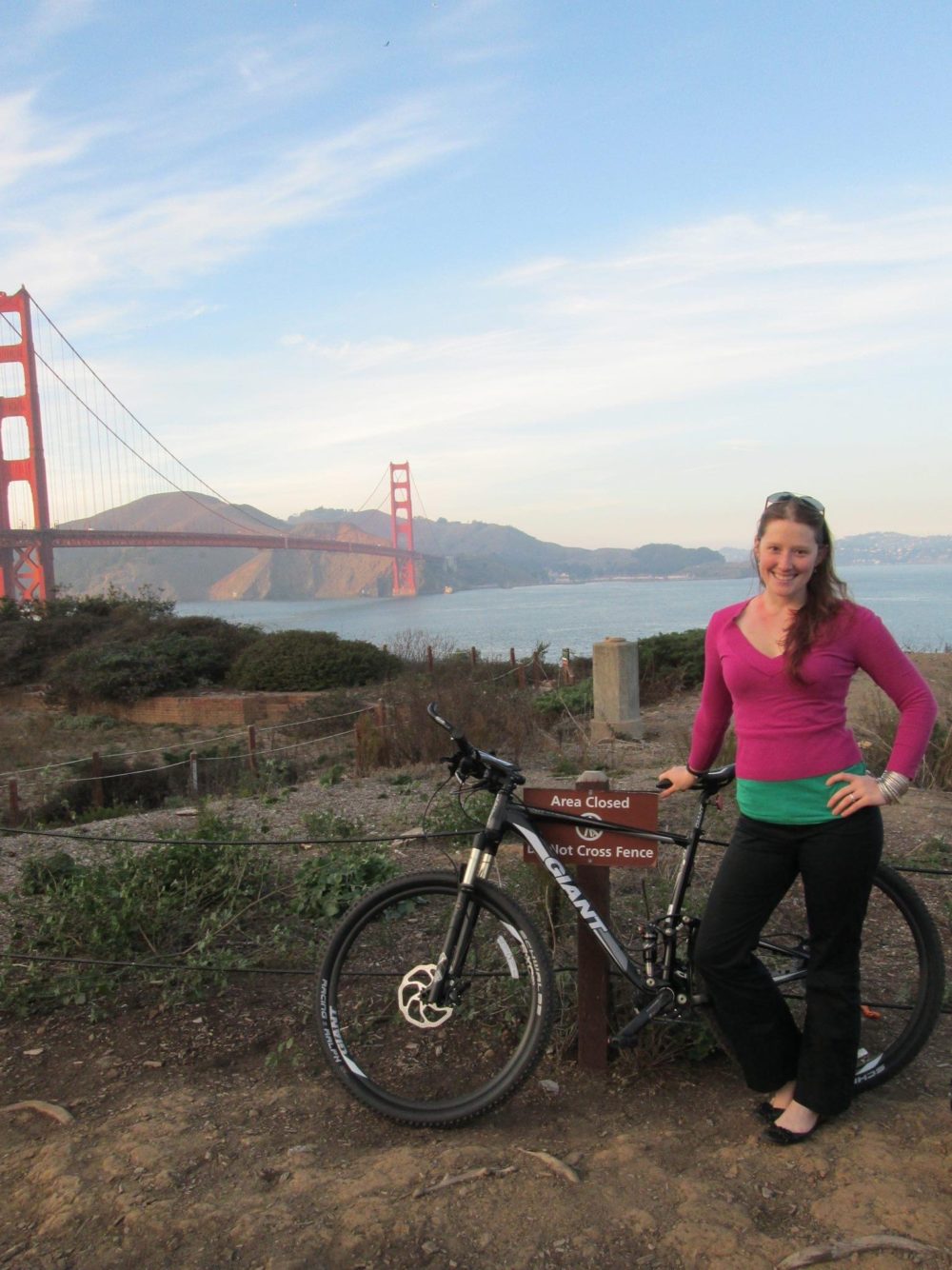
The answer to the question posed above is simple: You can’t. You won’t ever know that your help is needed (much less HOW to help) if you aren’t even aware that those in need exist. If people are invisible, they are excluded by default and definition. And that is not only not ok, it’s an indication of our failures as a community. Those who have more should do more. And becoming aware, sharing that knowledge with others, and following Kathryn’s lead provides us all with opportunities to do more and do better every single day.
Regardless of political affiliation or ideology (bicycles are bi-partisan, folks), I think it’s safe to say that we should take pride in being American. Allegiance and patriotism are expressed in their truest forms when altruism and advocacy for minority groups are practiced consistently and passionately. Those are the founding principles of our American humanity and of our U.S. Constitution.
At 4 years old, Kathryn’s willingness to fight for the underdog was still an undiagnosed symptom of her herculean humanity. (It’s a feature, not a bug.) She threw a leg over the top tube of her tiny bicycle on a grassy knoll in a park somewhere in Western North Carolina and, as she says, with “lots of encouragement, an intentional lack of training wheels, and a few knee scrapes later, I was on a roll.” In this particular case, the underdog was she. More likely to fall than to fly, she bravely taught herself to do something that would inevitably change her life and its beautiful purpose forever.
Including ALL Cyclists in Birmingham, Alabama
Now living in Birmingham, Alabama, Kathryn popped up on my personal radar after being introduced by Bike Law Alabama’s Danny Feldman. Danny had an existing relationship with Kathryn that began while she was the Director of Redemptive Cycles (more on why this local bike shop is so special in a little bit), and told me that she was an ideal Bike Law Foundation Ambassador and a woman in the saddle whose professional and personal advocacy for the invisible cycling community needed to be recognized and shared with anyone and everyone who would listen. Danny was right, and Kathryn quickly became one of my go-to resources for the work Bike Law Foundation does to service our whole cycling community, beginning with those most in need.
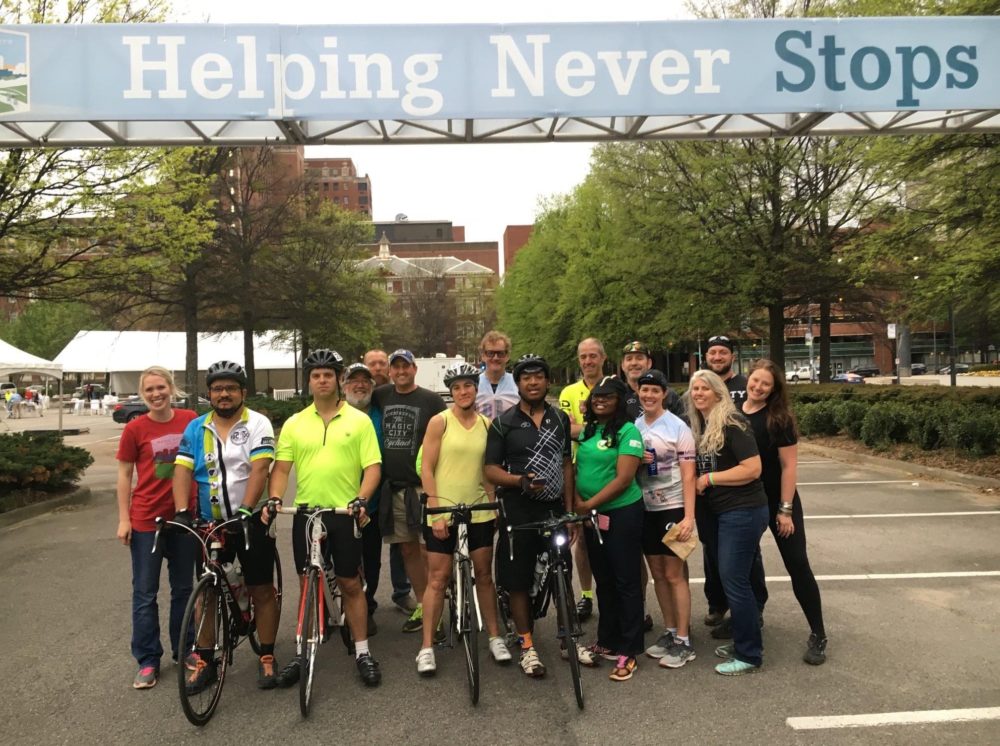
Why? Myriad reasons. But for starters, Kathryn explains some of the hurdles we face and why they have a harmful effect on bicycling. And in typical She-ro fashion, along with problem identification, Kathryn also offers solutions.
“There are silos that are self-constructed within the cycling community. I could go on for ages about how problematic and sad this is but I’d either be preaching to the choir or it would fall on deaf ears depending on the reader. We have to get to a point as a community where we can agree that anybody on any bicycle qualifies as a cyclist and we have to be willing to advocate for this community with the same passion that we advocate for our own niche sub-community of cycling. If you’re not thinking about the homeless cyclists using their bicycles to navigate the city in the wee hours of the morning when you talk about cycling advocacy & infrastructure, you’re not being inclusive enough. Broaden your scope.”
For most advocates, safety is the number one priority. But getting the bicycling conditions in our cities and states to measure up to our expectations and needs takes a much closer and nuanced look into the variables that make them inequitable and “unsafe.” Kathryn rides for the same reason we all ride: Freedom. But she also rides to serve as the conduit for opportunity, equitable consideration and access to resources, cycling justice, and education.
“Birmingham is making big strides to being more bike-friendly but we have SUCH a long way to go as a city. Part of the problem is that we need to remember that cycling isn’t just a sport of the privileged. We do have islands of good infrastructure but lack the interconnectedness that would allow someone to move throughout the entire metro area by bike safely & with ease. Unfortunately, some of the best cycling infrastructure in Birmingham is concentrated in the most affluent neighborhoods. This lack of interconnectedness is just unacceptable because it only solidifies the invisibility of cyclists whose bicycle is their sole means of transport. I’m a huge advocate for people who cycle out of necessity and I believe that we are failing as a cycling community if we are not serving them equally.”
I couldn’t have said it better and it’s more impactful coming from Kathryn because as we’ve said many times before, the more specific and focused we are on making “micro” changes and improvements, the more successful we are as a whole and the more likely we are to affect positive change on the macro level. No one knows the invisible cycling community in such an intimate and respectful way as Kathryn. The more specific her focus, the more powerful and empowering she becomes.
If those who use the bicycle for its originally intended purpose cannot do so safely, those of us who use it for fun and for sport will always be at risk to the very tragedies we read about and see on the news; the ones that get us so outraged on social media; the kind that inspired Bike Law Founder Peter Wilborn to create this organization out of whole cloth when his OG triathlete brother, Jim, was killed while riding his bike in Wyoming. Tomorrow just happens to be the 22nd anniversary of his passing.
Kathryn rides with and for a very specific subgroup of cyclists, and one of which she is not technically a part. That’s what makes her so necessary, so brave, and so special. If she can speak so passionately, selflessly, and competently on behalf of those without voices; if she can ride alongside those who would never require bikes that cost more than some cars and matching lycra kits as the cost of admission to a club, team, or shop ride, then Kathryn is qualified to help lead us all into a better, safer, more inclusive biking future.
During the past couple days, I have focused a lot of time on sharing what other Women on Bikes identify as their suggested and hopeful ways each of us can encourage non-cyclists, especially potential women riders who would like to get in the saddle, to begin a lifelong relationship with the bike. Kathryn’s approach to breaking down barriers and creating safe spaces for women to learn to ride follow in suit.
Teaching Women to Ride
“I think that a safe, inclusive space for beginners in cycling is SO hard to find. And I think it is so easy to get discouraged by a feeling of not being the right body type, not having the ‘right’ gear, not being fast enough, not knowing the lingo, etc etc etc. Who would want to take up a hobby that feels hostile & unwelcoming from the get go?
“I had the immense privilege of teaching a woman to ride a bike and it was such a joy. She was 60+ and it was a bucket list item for her. She initially came to a group class that I was facilitating at Redemptive Cycles. That afternoon was a wash for her : she never got beyond wide strides, balance bike style, in that parking lot. But we talked after and I offered to meet her biweekly until she could ride. It took about six weeks, lots of frustration and one big fall. She was so brave throughout the process and I had to serve as much as a cheerleader as I did a teacher…. but the day she and I rode next to each other in the park, lots and lots of happy tears were streaming down our faces. I learned so much from her through those weeks but I think it really served to remind me that women really need to support one another as cyclists. I had the immense privilege of helping her start her life as a cyclist – what an honor!”
Redemptive Cycles
Redemptive Cycles tackles many of the issues Kathryn speaks about and they do it in the best way possible. As their former Director, the shop provided a platform and environment for Kathryn’s work. The non-profit shop’s mission is “to redeem the streets. We believe getting people on bikes makes Birmingham a more connected, comfortable, and livable city. Bicycles are affordable transportation, which not only fight congestion, parking shortages, and pollution in the city center, but also boost individual health and fitness!”
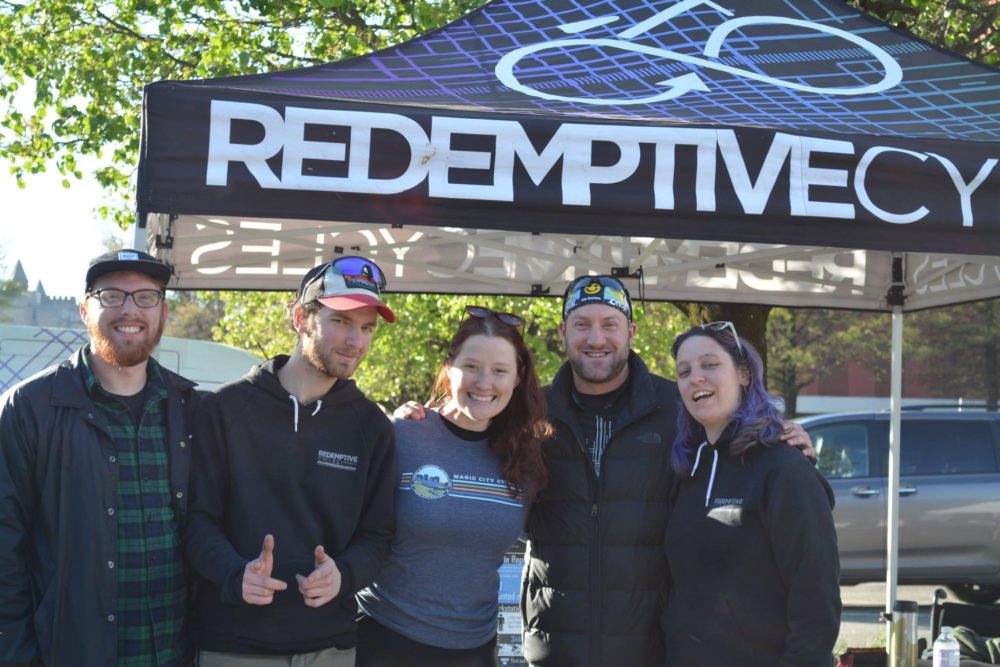
“Through our nonprofit bike shop we sell new and refurbished bicycles at an affordable price, provide professional-quality repairs and maintenance services below market rates, and use a sliding-scale rate to reduce repair charges based on income level for those in need. Through our “Earn-A-Bike” program, those in need can volunteer at the shop, learn how to repair and maintain a bicycle, and leave with a bike of their own.”
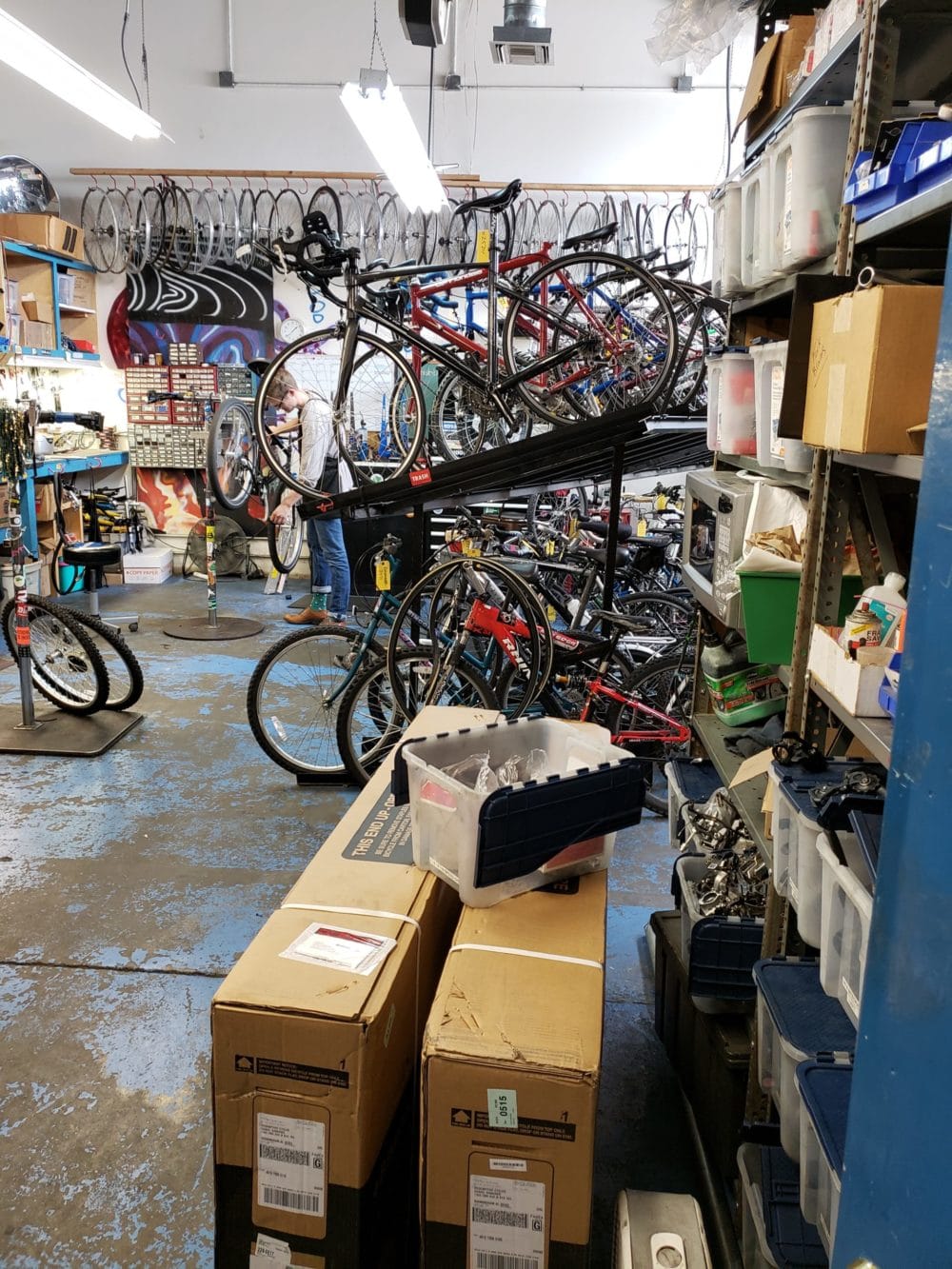
Inspiring Others
So much of what we can do today for all people on bikes as women on bikes requires the Kathryn Doornbos combo pack of honesty, humility, and self-awareness that is and should be uncomfortable for every one of us that is still learning how to leave the world better than we found it. We cannot shy away from the discomfort. We should be brave enough not to look in another direction or to others to do our share. From a cultural perspective, “fixing” bicycling isn’t a task that’s different from any other challenge in our daily lives.
“I think in the midst of so much conversation related to racial and social equity, the cycling community would be remiss to not look in the mirror in contemplation of these issues. Are we doing enough to advocate for invisible cyclists? Are we doing enough to invite all cyclists to join us in a ride? Are we doing enough to utilize our personal privilege as leverage for someone without? Are we ensuring that our spaces are welcoming & a respite for people who don’t look or live like us?”
And equally as important as the discomfort is compassion. We need the reminder that courage doesn’t always roar. Sometimes it’s the quiet voice inside of each of us that says we’ll try again tomorrow. When Kathryn and I spoke about how we must be able to roll with life as it comes, prioritizing self care and love so that we can give our best to those around us, she remarked, as she always does, with such openness and authenticity.
“This year has been a doozy, huh? I’m currently not riding as much as I have in the past and it’s just part of this season for me. In addition to [everything else], I’ve started a new job this year and my Dad died in early March so it’s been a year of pretty extraordinary change in my life – compounded by really distressing domestic and international events. I’ll come back to it one day but my bike has taken a back seat lately, it just is what it is for right now.”
Hey, Kathryn, the bike doesn’t care how often you ride. And our cycling community doesn’t care either. When we call, you respond. And in the likely event that I ever need a gentle reminder about why we do what we do and just how impactful the power of one WOMAN can be, it’s not how frequently you’re in the saddle that makes you such an inspiration for other women bike advocates like me, it’s that you’ve paved the way for the rest of us to be wheels down, heard, and SEEN.

Rachael Maney is the Director of the Bike Law Network and of the non-profit Bike Law Foundation.
